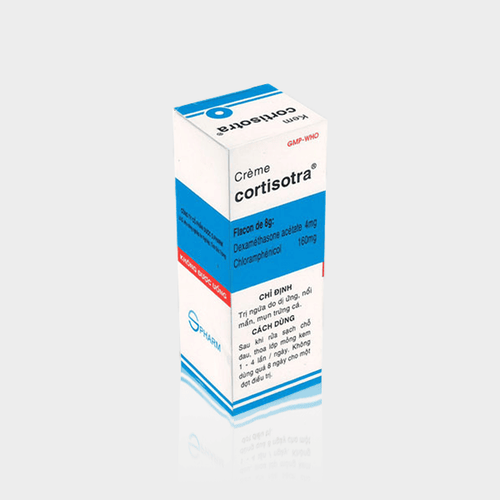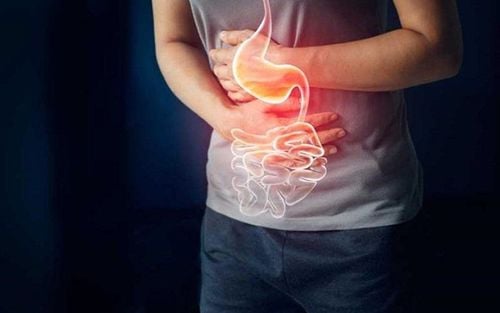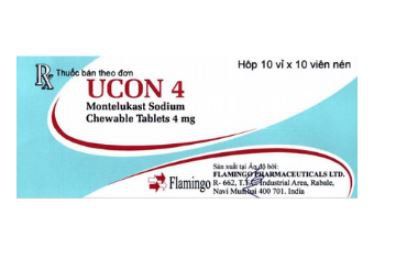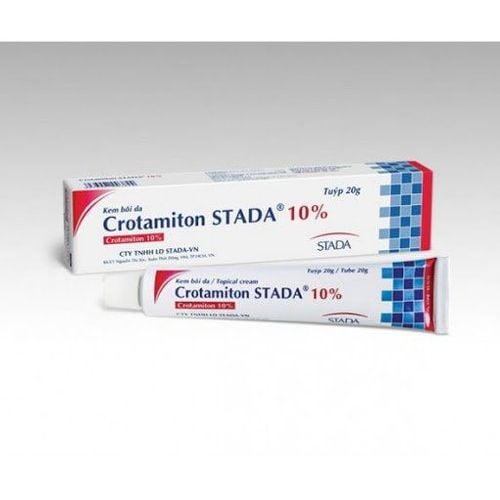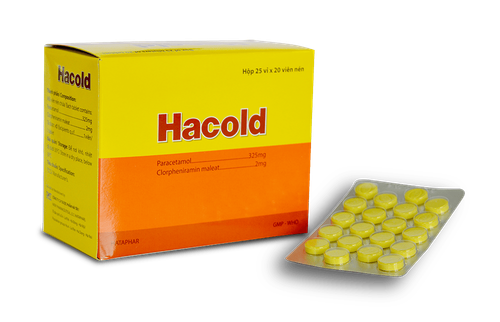This is an automatically translated article.
Weather allergy is a fairly common disease in people with sensitive terrain. The disease is persistent, easy to recur, and often cannot be treated completely. So “What is a weather allergy?” has been and is the concern of many patients with seasonal allergies. So when you have a weather allergy, what to eat?
1. Symptoms of seasonal allergies
Allergies weather is a condition in which the body develops a red rash and a rash. Weather allergies take place with fairly recognizable signs, often appearing in the changing seasons from summer - winter or winter - spring with sudden changes in temperature and humidity such as:
1.1. Skin rash with red spots and tingling: Areas of skin exposed to sudden hot or cold temperatures, especially open skin areas such as the neck, face, hands, feet, chest, back. .. will be the most prone to rashes. At this time, the patient will feel itchiness, discomfort and scratching reflexively. However, the more you scratch the more severe the condition, the red dots will spread in clusters and then rise all over the surface of the skin without relieving the itch.
1.2. Redness or blistering skin: The above symptoms are common in patients with severe weather allergies, especially swelling will appear around the lips, face or neck, causing serious cosmetic loss. Blistering skin accompanied by itching is not only uncomfortable for the patient, but also makes cleaning and care more difficult.
1.3. Eczema: These eczema are unlike other rashes that appear scaly on the head and will grow near the elbows, skin around the face or young thighs.
1.4. Acute urticaria: Acute urticaria is a symptom of a very dangerous weather allergy, which can cause difficulty breathing, a rapid and sudden drop in blood pressure, allergies all over the body. Especially if not handled in time can cause death.
2. When you have a weather allergy, what should you abstain from?
Abstinence is essential for patients with seasonal allergies, to help control symptoms and prevent possible complications or long-term damage.
2.1. Weather allergies should abstain from foods that are easy to irritate the skin. But usually, it is necessary to avoid using strange foods, containing many skin irritants that will affect the immune system:
Protein-rich foods such as seafood, butter, milk, eggs and red meat,... easily cause skin irritation, making the whole body red, difficult to breathe and itchy due to weather allergies become more serious. Peanuts: Contains the main ingredients Albumin and Vicilin, both of which can cause strong allergies, so this is also a food that people with seasonal allergies should avoid. Hot spicy foods also make weather allergies worse by causing internal heat, increasing body temperature and triggering allergic reactions. Especially when there is a rash, itching, it is necessary to avoid eating hot spicy foods and vice versa, priority should be given to the use of frugal and watery foods. Cold food: This is also a food on the list of foods that should be avoided by people with weather allergies because when eaten, blood circulation is limited, the liver detoxifies less effectively, causing toxins to accumulate in the body. the body and the allergic condition becomes more severe. Fermented foods such as eggplant, sauerkraut, pickles, etc. contain many types of bacteria that worsen allergy symptoms. Alcohol or stimulants: This food group is recommended to be limited. These substances easily accumulate in the body and cause toxicity, making the immune system work less, allergies also worsen. 2.2. Weather allergy should abstain from exposing the skin to wind or cold water The skin with weather allergies will be very sensitive and vulnerable than usual, so it is necessary to minimize exposure to wind or water. cold. Especially in dry weather, the itching caused by allergies on the skin will be more widespread along with many other uncomfortable symptoms.
Moreover, people with weather allergies need to be especially careful to avoid getting cold when bathing, using warm water and bathing in a well-ventilated room. After bathing, you should dry your body, use a heater or cover your body with a blanket to keep your body from getting cold.
2.3. Allergies in general and seasonal allergies in particular will cause many unpleasant symptoms, especially skin damage with itching. However, patients should not arbitrarily use as well as abuse an overdose of antibiotics for allergies, anti-allergic creams, ... Using drugs in the wrong way or abuse will make the body's allergic reaction even worse. becomes more difficult to control.
2.4. Weather allergies should avoid wearing tight, tight clothing Tight, tight clothing will cause rubbing on the skin, making the allergy worse and more widespread. In addition, vigorous rubbing of the allergic skin also causes scratches and dangerous skin infections. The patient should be dressed in comfortable clothes to minimize the area of skin in contact with the fabric, avoiding the risk of hypersensitivity to fabrics, washing powders, and pathogens on the fabric.
3. What should be done to reduce uncomfortable symptoms of weather allergies?
In addition to abstaining from inappropriate foods or living habits, patients with seasonal allergies should also apply the following home care measures to control symptoms of the disease:
Drink water regularly filter or fruit juice; Exercise improves health, increases blood circulation and reduces the risk of disease. Get enough sleep, stay positive, stay optimistic. Clean and clean the surrounding living environment, especially personal items such as pillows, blankets, towels, ... Allergic weather depends on each person's location. Usually, strict abstinence will help patients control some of the allergy symptoms and prevent complications effectively.
Please dial HOTLINE for more information or register for an appointment HERE. Download MyVinmec app to make appointments faster and to manage your bookings easily.





